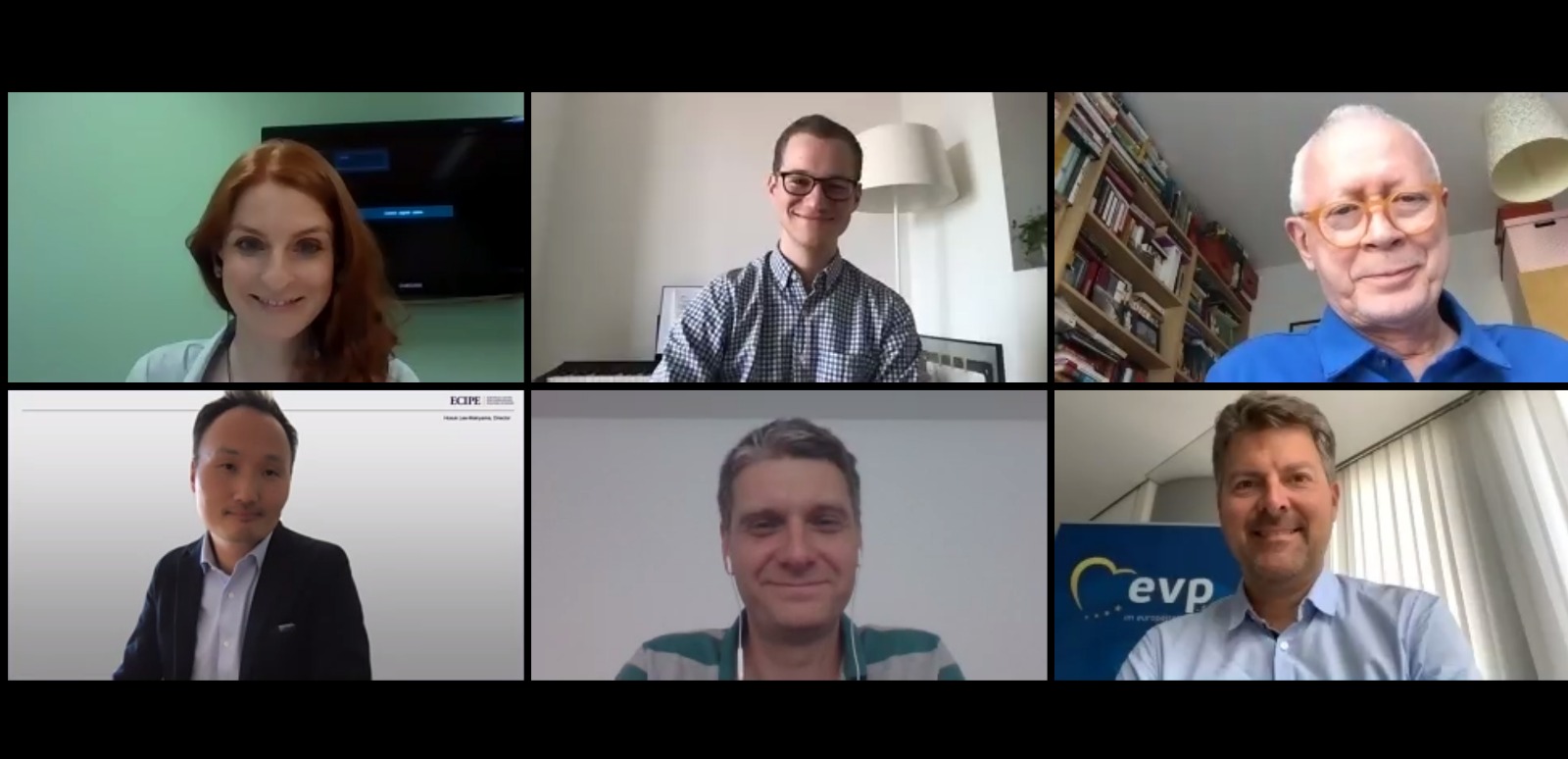EU Ex-Ante Platform Regulation –
Which Way Forward?

On Tuesday June 2nd, SME Connect hosted in collaboration with SME Europe a webinar titled “EU Ex-Ante Platform Regulation – Which Way Forward?” to facilitate a constructive discussion on competition law and its implementation in the field platform regulation.
The webinar showcased high-level speakers such as MEP Andreas Schwab, Member of the Committee on Internal Market and Consumer Protection; Hosuk Lee-Makyiama, Director of the European Centre for International Political Economy (ECIPE); Bartlomiej Telejko, EU Public Manager at Google; Eline Chivot, Senior Policy Analyst at the Center for Data Innovation; and Benedikt Blomeyer, Director of EU Policy at Allied for Startups. The webinar was moderated by Dr Michal Boni, Minister of Administration & Digitalization of Poland 2011-2013, Member of the European Parliament 2014-2019 and Special Representative for Digitalization & AI, SME Connect.
Dr Boni opened the floor by stating the importance of creating a transparent debate on platform regulation that limits redundant domination by few players but at the same time reduces unintended consequences for market players, SMEs and everyday users.
Andrea Schwab MEP remarked how ex-ante platform regulation can work as a double-edged sword: on one side, it may prevent anti-competitive practices, especially in the case of Big Players; on the other side, it may create additional administrative and bureaucratic barriers for SMEs, inhibiting innovation. Borrowing the “duty of care” principle from the e-commerce Directive could be a possible, fair solution to balance responsibility between platforms and operators in a flexible way for both Big Tech and SMEs.
Hosuk Lee-Makiyama stated “All companies rely on intermediaries”. Creating an ex-ante regulation framework for platforms would actually be counterproductive for diversity and competition, as it would create market concentration, limiting market access for market entrants. Similarly, Bartlomiej Telejko raised the issue of ad-hoc regulation that specifically targets selected players without actually solving underlying systemic problems.
Eline Chivot explained that structural measures to uphold competition are not the solution for the digital market as it is precisely the scale of bigger players that allows them to offer free resources, maximizing customer welfare. Moreover, market dominance in one specific sector does not necessarily translate to other areas.
Lastly, Benedikt Blomeyer reprised the importance of enabling innovation: start-ups entrepreneurs are driven to build upon existing infrastructure and tools that provide them a reliable ecosystem in which innovation is possible. Ultimately, it is important to leverage the startups’ ambition to become the next European unicorn without having ex-ante platform regulation as a “looming threat”.
For those that haven’t followed us live, watch the replay